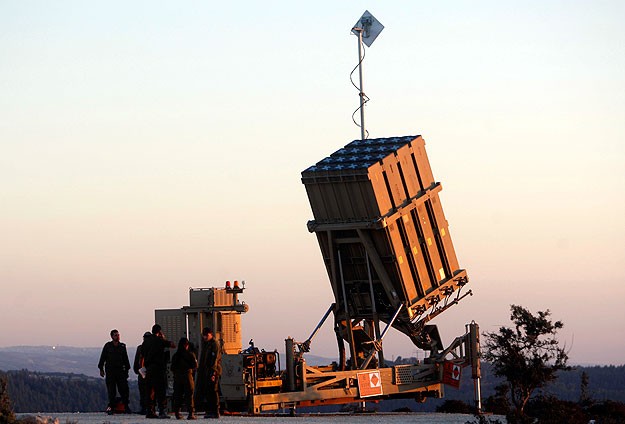As Palestinians in the Gaza Strip begin to pick up t he pieces during an uneasy ceasefire agreed between the Israeli government and Hamas following a month of airstrikes and ground operations.
 As Palestinians in the Gaza Strip begin to pick up t he pieces during an uneasy ceasefire agreed between the Israeli government and Hamas following a month of airstrikes and ground operations that killed almost 2,000 Palestinians, Israeli weapons manufacturers are celebrating the business opportunities the war will bring them.
As Palestinians in the Gaza Strip begin to pick up t he pieces during an uneasy ceasefire agreed between the Israeli government and Hamas following a month of airstrikes and ground operations that killed almost 2,000 Palestinians, Israeli weapons manufacturers are celebrating the business opportunities the war will bring them.
World Bulletin website reported that the Nazareth-based 'Israel Military Industries' (IMI) now see a turn around to years of bad business which has led to the gradual privatization of their company, after new weaponry they developed for the Zionist army look likely to attract new customers having been successfully 'battle-tested.'
"IMI provides a wide range of weapons and ammunition for the IDF and Israeli Artillery Corps, from 5.56 mm bullets to Kalanit and Hatzav tank shells, which explode in midair and release shrapnel. Among the arms is the new MPR-500 multipurpose rigid bomb, which is designed to penetrate reinforced concrete structures. These were all used in the recent attacks on Gaza for the first time," the website said.
It noted that the IMI expects more interest in its products from abroad, and it is already awaiting a back payment of 5.6 billion shekels for these weapons from the Zionist entity state.
Eli Gold, the CEO of SK Group's Meprolight, which manufactures sights for sniper rifles and night-vision equipment which sells 90% of its products to customers abroad, told the Zionist daily Haaretz: “After every campaign of the kind that is now taking place in Gaza, we see an increase in the number of customers from abroad,” adding, “Of course, we marketing abroad aggressively, but IDF (Zionist army) operations definitely affect marketing activity.”
Barbara Opall-Rome, the Zionist bureau chief for the U.S. magazine Defense News, was also quoted by Haaretz saying: “Combat is like the highest seal of approval when it comes to the international markets. What has proven itself in battle is much easier to sell. Immediately after the operation, and perhaps even during, all kinds of delegations arrive here from countries that appreciate Israel’s technological capabilities and are interested in testing the new products.”
Senior military correspondent Amir Rapaport in the Zionist entity said “Operation Protective Edge saw many weapons systems and other technology that had been under development since the time of the Second Lebanon War in 2006 enter the field of battle, for instance a unique communications system designed to link air, sea and ground forces to the same infrastructure.”
However, Zionist Major General (res.) Isaac Ben Yisrael, a former director of the Defense Ministry’s Research and Development Directorate, brushed off the notion that the war would increase sales to foreign clients.
“Iron Dome, for example, is one of the main developments in this war,” he told Haaretz, “but there’s no demand for it in the world, because other countries don’t face a similar threat.”
At least 1939 Palestinians have been killed so far in the Zionist deadly offensive against the Gaza Strip, while around 10,000 Palestinians have been injured, according to Palestinian officials.